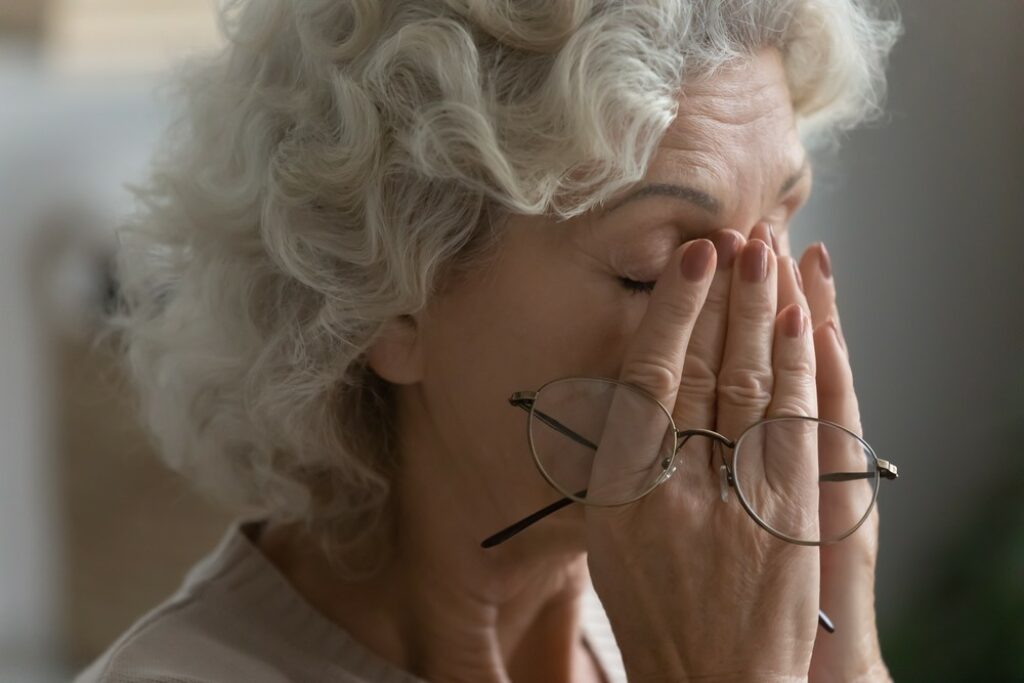
Daytime Sleepiness Causes And Treatment For Seniors
Do you often find it hard to stay awake and alert during the daylight hours, no matter what you do? If so, you’re not alone. Also referred to by many as chronic fatigue syndrome, feeling sleepy during the day can cause a slew of problems and dangers, especially for senior citizens.
Related Topics (Sponsored Ads):
Daytime sleepiness is quite a common issue in this age demographic. It affects their overall productivity, quality of life, and increases the risk of accidents and injuries that are hard to heal from at a more advanced age. This struggle to stay awake and alert during the day can also lead to an increased and unhealthy dependence on others.
Beyond that, it can also put a strain on the health of friendships and relationships, and cause a neglect of essential daily activities, such as personal hygiene, garbage disposal, laundry, cleaning and more. Although there is no magical cure for this condition, there are various treatment options available to help manage and reduce the debilitating fatigue.
This article will go into greater depth regarding the causes of daytime sleepiness in seniors and the risk factors associated with this condition, along with the available treatments to address and manage it effectively.

Causes
Many natural or underlying factors can contribute to increased daytime fatigue, such as:
1. Aging-related Changes: As people age, their sleep patterns naturally tend to change. Seniors often experience a shift in their circadian rhythms, making them naturally more inclined to sleep earlier in the evening and wake up earlier in the morning. This can lead to a strong desire to sleep during the day if they do not adjust their sleep schedules and habits accordingly.
2. Insomnia and Sleep Disorders: Seniors are more susceptible to sleep disorders like insomnia, sleep apnea, restless legs syndrome, and periodic limb movements during sleep. These conditions can disrupt the quality of sleep and lead to severe drowsiness during the day.
3. Medications: Taking multiple medications for various health conditions can lead to excessive feelings of fatigue. Some medications, such as certain antidepressants, antihistamines, and benzodiazepines, may cause extra drowsiness.
4. Poor Sleep Habits: Seniors may have poor sleep habits, such as irregular sleep schedules, excessive napping during the day, or engaging in stimulating activities close to bedtime, which can disrupt their sleep-wake cycle.
5. Medical Conditions: Certain medical conditions common in older adults, such as chronic pain, heart disease, diabetes, and neurodegenerative disorders, can interfere with sleep.
Associated Risk Factors
As previously mentioned, advancing age can alter sleep patterns and make seniors more prone to experiencing daytime sleepiness. Other risk factors include:
~ Gender: Studies have shown that women tend to report more problems with sleep than men, and this gender difference may also contribute to increased daytime sleepiness in older women.
~ Lifestyle: Sedentary lifestyle, lack of physical activity, and poor diet can impact sleep quality and contribute to daytime sleepiness in seasoned individuals.
~ Mental Health: Conditions such as depression and anxiety are prevalent among seniors and can lead to sleep disturbances and excessive daytime sleepiness.
~ Chronic Illnesses: Seniors with chronic medical conditions often experience sleep disruptions due to pain, discomfort, and medication side effects, which can exacerbate daytime sleepiness.
~ Sleep Environment: An uncomfortable sleep environment, excessive noise, or inadequate temperature control in the bedroom can hinder restful sleep, leading to daytime sleepiness.
Available Treatment Options
The following treatment methods have shown to be effective:
a. Try modifying your lifestyle habits by adopting a regular sleep schedule, engaging in regular physical activity, and maintaining a balanced diet. All of these changes can significantly improve sleep quality.
b. Improve overall sleep hygiene and bedtime routine. You can do this by changing your bedsheet and pillowcase regularly, stop screen usage at least an hour before bedtime, don’t watch or read anything scary at night, and try to avoid dairy at dinnertime, as it can cause nightmares.
c. A regular review of medications by healthcare professionals can identify drugs that contribute to daytime sleepiness, and adjustments can be made to minimize these effects.
d. Cognitive Behavioral Therapy for Insomnia (CBT-I) is a proven non-pharmacological treatment for insomnia, which can be quite effective in helping seniors manage sleep-related concerns.
e. Continuous Positive Airway Pressure (CPAP) Therapy is a treatment usually prescribed to those who have been diagnosed with sleep apnea. CPAP therapy can be a highly effective treatment to improve breathing and reduce snoring fits during sleep.
f. Try Light Therapy. While it may sound a bit strange, some seniors have reported that exposure to bright light therapy has benefited them. It can help regulate their circadian rhythms, thereby improving natural sleep-wake patterns.
Suitability
Lifestyle modifications and sleep hygiene education are generally appropriate for all seniors experiencing daytime sleepiness, as they are safe and have no side effects if followed properly.
CBT-I is designed for seniors with insomnia and other sleep-related concerns. Plus, it is a safe and effective treatment option that does not rely on medication. CPAP therapy is specifically appropriate for those diagnosed with sleep apnea. Difficulty and discomfort with the CPAP machine may have caused some concern in the past, but technological advancements in recent years have made the devices more user-friendly.
Additionally, light therapy may be suitable for some seniors with circadian rhythm disturbances or seasonal affective disorder (SAD). However, it is crucial to monitor its effectiveness carefully, and address any potential side effects.
Final Thoughts
As you can now see, daytime sleepiness can have a significant impact on your overall well-being and daily functioning. It is especially dangerous while driving and using knives or machinery, as these activities require you to be 100% alert. Therefore, it is imperative to find the underlying cause of the daytime tiredness you’re experiencing, by getting checked by your doctor or a professional at a sleep clinic. They will then implement a treatment that best suits your individual needs.




